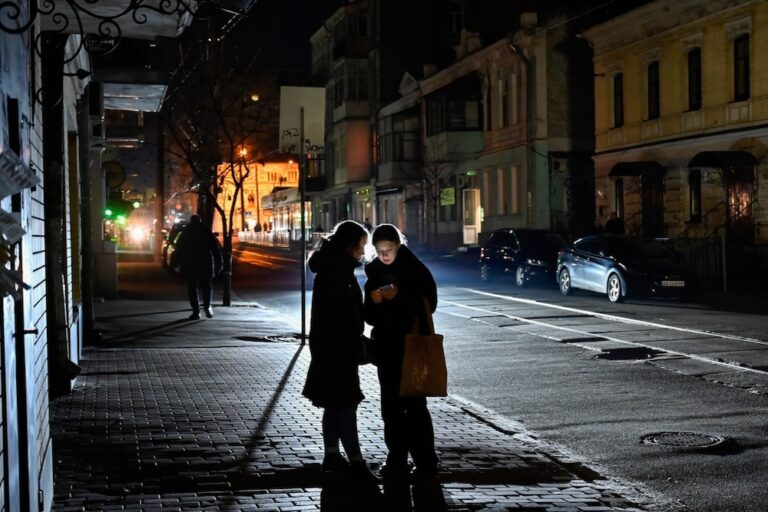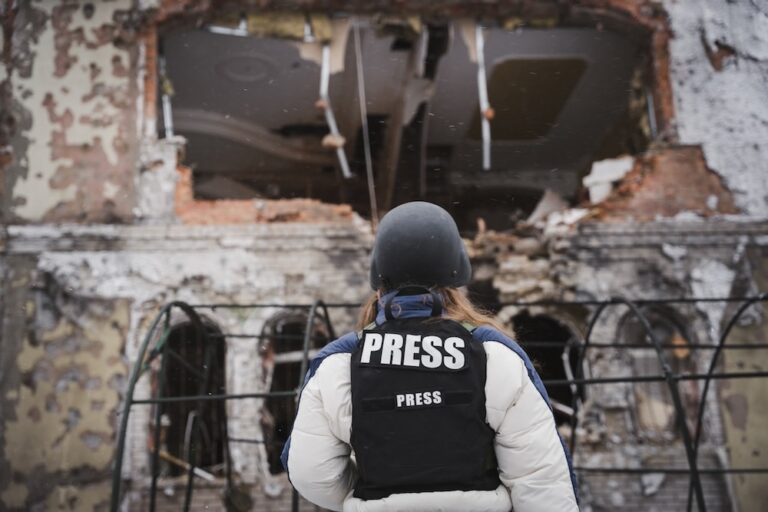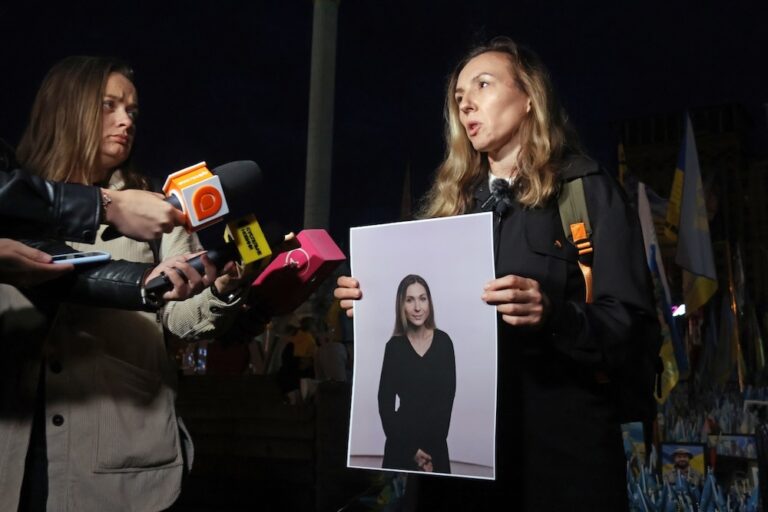"I wrote several articles about the lives of authorities, their incomes and sources of financing. And officials may not like this," said journalist Oleksiy Matsuka.
(IMI/IFEX) – On 31 July 2011, around 2 p.m., unknown persons set fire to the flat of Oleksiy Matsuka, a Donetsk journalist who is editor-in-chief of the “News of Donbass” website and the head of a regional public organization, the Donetsk Institute of Information. The journalist shared the information regarding the fire via his Facebook page.
Someone barricaded the door of the journalist’s apartment so that no one could leave and set it on fire. The arsonists left a memorial wreath with an inscription that read: “To Oleksiy from grieving friends.” Matsuka was not in the apartment when the incident took place.
“I have already filed a report with the regional prosecutor’s office, the police and the Security Service of Ukraine (SBU). They have promised me to report by the end of the day which article the criminal case has been initiated under,” Matsuka told IMI.
Matsuka sees a clear connection between the arson and his journalistic activity, but does not exclude the possibility that it could also be linked to his work in the public domain. “I wrote several articles about the lives of authorities, their incomes, sources of financing. And officials may not like this,” he said.
According to the police, the criminal case was initiated under Part 1, Art. 296 of the Criminal Code of Ukraine, relating to “hooliganism”.
IMI lawyer Dmytro Chopovskyi believes that, considering the nature of the criminals’ actions, this case also qualifies under Art. 12 and 115 of the Criminal Code of Ukraine as attempted murder, which would provide for a more severe penalty, including imprisonment. According to Chopovskyi, the final definition of the case must be established during the investigation. If the connection between the incident and the professional activity of the victim is proven, then the case could also be considered under Art. 171 of the Criminal Code of Ukraine, relating to “obstruction of a journalist’s professional activity”.


